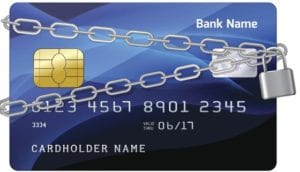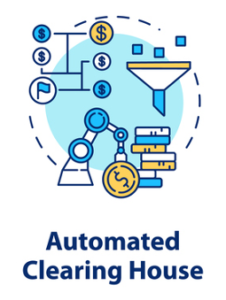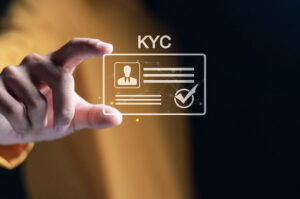When a business owner wants to pay his workforce regularly, there’s a digital network for that. If the federal government issues a stimulus directly to American bank accounts, interest is paid on investments, or dividends are received by shareholders, there’s a network for that too. Because of this network and advancements in fintech, moving money from one account to another can be as simple as the touch of a button, but behind-the-scenes professionals still pull the levers to allow that ease of use. These networks used to move money help streamline processes many never have to think about aside from receiving funds. However, the particulars of accurately, reliably, and securely operating the system still require people who take the time to learn. NACHA, formerly known as the National Automated Clearing House Association, sets the rules for parties moving money from one bank to another across the Automated Clearing House network, or ACH.
In order to encourage the safe, secure operation of the network, NACHA offers a comprehensive exam on the ACH system for professionals in the field of finance every year. They see their test as a way to advance in your career, demonstrate knowledge and proficiency in the cornerstone principles and issues surrounding ACH, and more.
Those working in the payments industry are already well on their way to becoming Accredited Automated Clearing House Professionals. NACHA views experience in the field as a major key to qualifying to take the exam that covers details and topics in the automated payments network. Those with less than a year’s experience need a waiver to sit for the test, but NACHA recommends two years before you attempt to demonstrate your mastery of payments through this accreditation.
What is an accredited ACH professional?
NACHA’s AAP credential is awarded only to those who sit and pass a comprehensive exam covering payments, processes, exceptions, returns, reversals, compliance, fraud risk and management, and more. The credential demonstrates expertise for five years from the date of earning it, and AAPs will either retest or take 60 hours of continuing education credits in five years after passing the exam to maintain the right to call themselves AAPs.
AAPs are so well-informed and skilled that their expertise contributes to the overall security of the ACH system, which benefits both consumers and financial institutions. In addition to private banks, AAPs may work in public institutions such as governmental bodies. With the growth of the role of foreign contractors in tech and other industries, the AAP credential is highly valuable.
AAPs include vice presidents and senior cyber specialists at Federal Reserve banks, systems managers at credit unions, and more. Joining their diverse ranks can help you grow in this evolving, dynamic field.
Why become an AAP?
If you think of yourself as a lifelong learner, you may already be interested in sitting to become an AAP. If not, you may be encouraged by the idea that becoming a subject-matter expert can very positively represent a serious professional with ambitions towards becoming top-flight contributors to their field and team. The AAP credential shows more than ambition, however. Passing the exam shows a proficiency and understanding of processes and operating within the network with the dexterity of someone who has studied and become more than familiar with best practices and procedures. An AAP professional’s knowledge shows that they are ready to guide their team if anyone has questions. As potential leaders, AAP-certified workers are ready to handle higher tasks that require more comprehension of the ACH network and its intricacies, developing solutions and helping keep their organization well-positioned.
How to Become an AAP
NACHA recommends having two years of experience in a position affected by ACH, though they let those with less than a year sit if they produce a signed waiver. Considering the comprehensive nature of the exam, you may also choose to enroll in a preparation course.
Noggin Guru offers a self-paced online AAP Preparatory Training with short quizzes to help you understand where you are right on track and where you should review a section further. The 41 lessons included in the training are broken down into six broad topics. Topics cover ACH network basics and process rules, ACH file formats and technical specifications, ACH origination, and Originating Depository Financial Institutions (ODFI) obligations. The course will also cover prenotes, Notification of Charges, reversals, re-initiations, commercial reclamations, returns, and risk assessment and management.
NACHA offers a four-week test-taking window for the AAP credential every October. The test is pass/fail, and results are delivered immediately upon completion. Test takers will have three hours to answer 120 multiple-choice questions. Plan to register before the end of September in the year you will sit for the test.








